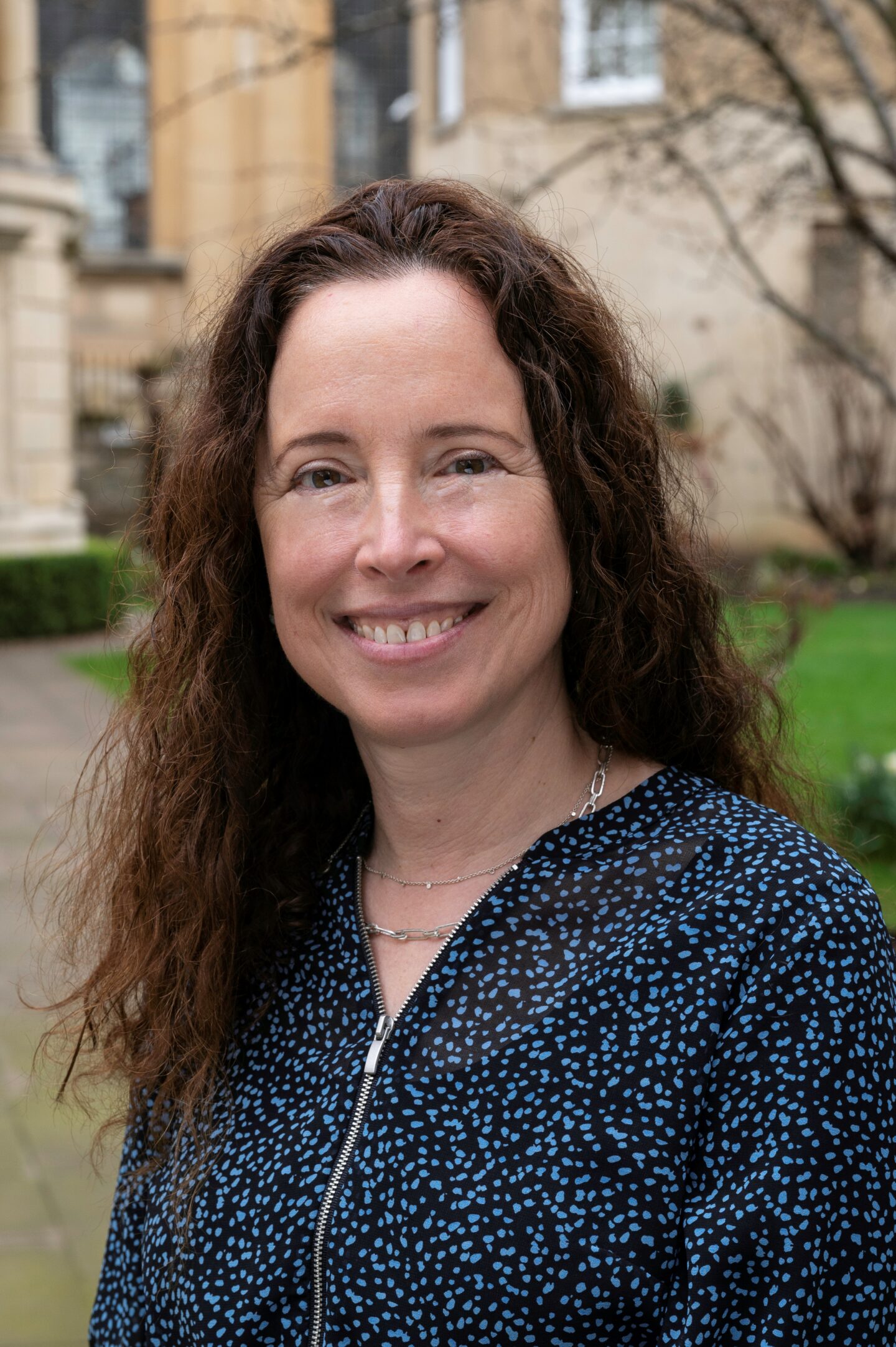Blog Post
The Future Unleashed - alumna Lynn Shepherd discusses the future of the novel

In the third episode of the video and audio podcast series, Helen O'Hara (1996) welcomes acclaimed author Lynn Shepherd (1982), also known by her pen name, Cara Hunter. Broadcasting from the stunning Lincoln College Chapel, they delve into Shepherd's celebrated Oxford-based detective novels featuring DCI Adam Foley. Shepherd discusses the evolution of her series, which began as a standalone book with an unexpected twist.
She reveals the process behind her compelling characters and plots, and shares the story of how her latest book went viral on BookTok, helping it turn into a New York Times bestseller. The conversation touches on the intersection of traditional and digital publishing, the resurgence of physical, beautifully designed books, and the impact of genre fiction.
Shepherd also reflects on the future of literature in the age of AI and the evolving role of women in publishing. With wit and insight, she challenges a common perception that crime novels can't be literary fiction, and discusses the ever-changing landscape of the literary industry.
On books in the age of Kindle and Instagram
“Publishers have realised that there is value in the physical book, and that you can treasure a physical book in a way that you can't with your Kindle. I mean, it's great for going on holiday. You can load it up and add no weight to your suitcase, but you can't write in it. You can't get the author to sign it, and you can't give it as a special present to somebody.
“I think they've really worked out that the value of asking people perhaps to spend a little bit more, but to get something very special. The edges can be painted now and a book can become a sort of collector's item almost.
“There’s something called bookshelf wealth. You show pictures of your room and the books on your shelves. People are telling you how to arrange your book collection to reflect your own personality. So books are becoming ways to communicate who you are. I suppose they always have been.
“Instagram is a big place for this. The physical book on Instagram, because it has colour and texture, can be used to create beautiful images. You see people do rainbow shelves and you can see them creating a still life of the book in the middle. There's also another lovely trend I’ve seen where they do an acrostic with a pile of books, so the first letter of each of the titles, and it spells something. So you can't do that with an electronic book. People are playing with physical books, which I think is fantastic.”
On the effects of AI on literature
“I think AI is a threat to human writers, but I suppose you then have to take a step back and say, well, what's the goal here? Is it to produce more good content for people to read, in which case does it matter where it's come from? Or is it to encourage human creativity, in which case, yes it probably is a problem because a machine is cheaper by definition and quicker by models than a human will ever be.
“I don't think it'll be long before the machine can do it all. There’s a website now where you can go and see if your books have been used to teach AI, and that's a weird sensation. It’s a sort of Frankenstein moment where you think: well, no one asked me about this. Certainly no one paid me to do this. You've just taken my books and you've learned something from them as a machine. That's a strange feeling.
“I know a lot of writers are trying to fight back against that, but it feels a bit like King Canute on the beach.”
Lincoln in three words - home, warm, proud
“First is home because I've actually been here twice. I was here as an undergraduate in the 80s, and then I came back and did a doctorate in 2003. It was really interesting because some things have changed, mostly to do with technology, but some things haven’t changed at all. It's always so welcoming when you do come back and, because it's a relatively small community, you know a lot of people, and that really does ground you.
“Second is warm. I think it's the community and that brings in everybody, the staff as well.
I think with some of the Colleges I've been to you get a sense of the real divide between the non-teaching staff, and the students. I never felt that here. Everybody’s part of the same place, and it's a very beautiful place, and everyone appreciates that and tries to cherish it. Warm would be a really powerful word for Lincoln.
“Proud would be the last one. I think that's because we achieve a lot for a small College. If you were to ask people in the street to name three Oxford Colleges, I'm sure they wouldn't come up with us.
“But we've achieved a lot. We've had a lot of very important people attend over the years who have achieved incredible things. If you look at the pictures of the women in the dining hall commemorating 40 years, the things that people have actually done and have brought to the world from such a small place - we should be really proud of that.”
The Future Unleashed is made possible through the generosity of Dr Sara Althari (2014), an alumna of Lincoln College, who developed this series with the College. You can find out more about Dr Althari here.
